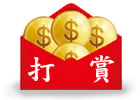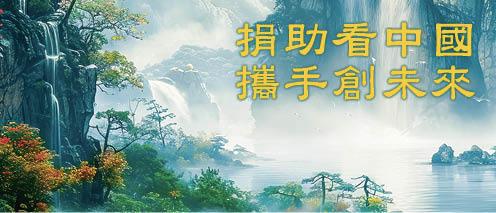該篇報導指出,中國媒體不斷頌揚江澤民"三個代表"的理論發展了馬克思主義,是中國共產黨的指導方針和力量源泉,等等。這些歌頌的詞句是自毛澤東逝世後所未曾見過的。
該篇報導表示,雖然中國高層權力的交接是幕後進行的,人們並不知道江澤民的真正意圖。如果江澤民在中共16大上讓出所有職務,江澤民將在中共的歷史上樹立一個里程碑。但是如果江澤民不放棄最高權力,中共領導人的權力移交就將出現混亂。
China's President May Be Reluctant to Cede Power
July 13, 2002
By ERIK ECKHOLM
BEIJING, July 12 - In what are supposed to be his final
months as China's president and Communist Party chief,
Jiang Zemin is being lionized in the official media as
never before, provoking intense speculation about his
ambitions to hold on to power in the years ahead.
The drive to elevate Mr. Jiang, even as a long-anointed successor waits in the wings, could result in a ragged
transfer of supreme authority, clouding what many hoped
would be the first orderly, rule-based transition of
leadership in the 53-year history of the People's Republic.
While top leaders always get adoring treatment in the press here, the campaign to praise Mr. Jiang and his theory of
modernized Marxism has reached a fevered pitch - a level of
adulation not seen since the heyday of Chairman Mao's personality cult.
In the last few weeks, among scores of similar tributes,the Central Party School's newspaper described Mr. Jiang's "three represents" theory as "the basis of our party, its foundation for governing and the source of its strength."
The theory, which was formulated in 2000 and is being extolled as a breakthrough in Marxism, is an effort to adapt the Communist Party to the vibrant, market-driven society that China is becoming. It holds that the party should represent "advanced productive forces, advanced culture and the fundamental interests of the broad masses of the people" - implying that the party can represent entrepreneurs as well as its traditional constituents, the working class and the peasantry.
The theory is Mr. Jiang's effort to join the pantheon of Communist leaders - his lasting contribution to the sacred texts of Marx, Lenin, Mao and Deng Xiaoping, which are still used to justify Communist rule and guide national strategy.
Mr. Jiang, who is 76 and has been the party's general secretary since 1989, is widely expected to hand off that pre-eminent post to Vice President Hu Jintao, 59, at a ajor party congress this fall, in keeping with an emerging norm that senior officials should not take new positions after age 70. He is expected to give up the job of president at the Parliament meeting next March, after completing the two-term legal limit.
If he gives up these posts, Mr. Jiang will achieve a milestone, shifting China away from a tradition of rule based on personalities toward one based on procedures and institutions. But it now appears increasingly likely that the power transfer will be more confused, either because Mr. Jiang retains some top posts or because he may try to exert influence behind the scenes.
Even before the current campaign to glorify Mr. Jiang, his supporters were pushing for him to hold on to his third key post, chairman of the Central Military Commission, which would guarantee him a continuing major role, especially on issues of national security. Many analysts think this is likely to happen.
More recently, Mr. Jiang's allies have quietly spread the suggestion that, because of his great experience and vision, he may need to stay on as party chief, too.
In the hidden chambers of Chinese politics, few can know Mr. Jiang's real intentions, and he may not have decided himself just how high he should aim. Nor is it clear whether he has the clout to keep the party job.
But it is already almost certain that his "three represents" theory will be the centerpiece at the major party congress this fall. More important, the theory is likely to be enshrined in the party Constitution - a step that may give Mr. Jiang enormous influence, even in retirement.
"If Jiang's thinking is written into the party's basic guidelines, that will make him a paramount authority," said
Wu Guoguang, a political scientist at the Chinese University of Hong Kong who used to write editorials for People's Daily, the party's mouthpiece. "Even if he has no formal position, Jiang Zemin will be the judge of whether the ideas are being correctly followed."
The maneuvering does not appear to reflect any deep split over basic policy. Politicians of Mr. Jiang's generation and the next broadly agree on the need to embrace the world economy while preserving the party's political grip at home.
But the campaign to elevate Mr. Jiang and his ideas does suggest the challenge that Mr. Hu faces in consolidating his own position, even if he becomes the nominal party chief. The lurking power of Mr. Jiang and his minions could also constrain Mr. Hu or other rising leaders if they wanted to push for faster political change or to reopen embarrassing questions about the past, such as the Tiananmen Square massacre of 1989.
A push by Mr. Jiang to hold on to authority could also complicate the succession process, experts say, if it caused other aging leaders to rethink their own retirements.
While there is no indication that China's foreign policies would change, an ill-defined division of top authority could pose problems in an international crisis: who would really speak for China?
Beyond the propaganda campaign, another sign that Mr. Jiang's power is not waning has been the recent reappointments of several of his close associates to senior jobs.
Since May, when Mr. Jiang gave what was billed as a landmark speech to party leaders, government offices have eld mandatory sessions to study the "three represents." However out of sync with China's changing society, such exercises remain a part of formal politics here, and otherwise vacuous phrases can signal important policy trends.
Ding Guangen, the chief of the party's propaganda
department, said in a journal that "studying, promoting and
personally realizing the `three represents' " was the No. 1
duty of party members as they prepared for the fall
congress.
Loyal scholars, officials and editorial writers have raced
to outdo one another as they portray Mr. Jiang's theory as
both a brilliant departure and a faithful continuation of
the nation's guiding "Marxism-Leninism, Mao Zedong Thought
and Deng Xiaoping Theory."
In a recent newspaper interview, Yu Yunyao, director of the
Central Party School, explained why the party's decision
last year to admit capitalists and private managers did not
alter its status as the "vanguard of the working class."
"Under new historical conditions, the class character of
our party has not changed," he said, asserting that the
party "understands and transforms the world through the
worldview of the working class."
Some of the most extravagant praise of Mr. Jiang has
appeared in the military newspaper Liberation Army Daily,
which day after day has run pictures of a glowing Mr. Jiang
visiting bases and has described him and his theory as
vital to progress.
A recent front-page editorial in the newspaper describes
Mr. Jiang's "tremendous courage," "political wisdom" and
"outstanding talent to rule the party, the country and the
People's Liberation Army."
Some experts here think this outpouring means that military
leaders are lobbying for Mr. Jiang to stay on as chairman
of the military commission. Others think it means that Mr.
Jiang already has the spot sewn up.
However intense the new campaign praising Mr. Jiang, few
think he can attain the prestige of Deng, who remained
China's effective leader through much of the 1980's and
1990's even as he shed formal titles. Status even remotely
comparable to that of Mao, who could set off national
turmoil with a single utterance, would be more far-fetched.
"The words may sound similar, but there is a huge
difference from the past," Mr. Wu said. "In the 1960's,
when the party campaigned for an idea, they expected
everyone to believe it. Today, the leaders don't expect
that much. If everyone just pretends to believe it and
follows the rules, that's enough."
There are times, however, when the new campaign has been
almost comically reminiscent of Maoist days. People's Daily
recently carried a full page of tributes to a new play,
"The Vanguard of the Era," which tells the story of six
contemporary heroes who exemplify the spirit of the "three
represents."
During a performance of the play, "an audience of hundreds
felt their souls fiercely shaken, and our eyes flowed with
tears," a member of the "selected audience" gushed.
But perhaps fittingly, given Mr. Jiang's efforts to stretch
Communist doctrine to accommodate the ascendant capitalist class, the heroes included, along with the usual selfless party models, a senior executive from the Haier Group Company, the Chinese electrical appliances giant.
短网址: 版權所有,任何形式轉載需本站授權許可。 嚴禁建立鏡像網站。
【誠徵榮譽會員】溪流能夠匯成大海,小善可以成就大愛。我們向全球華人誠意徵集萬名榮譽會員:每位榮譽會員每年只需支付一份訂閱費用,成為《看中國》網站的榮譽會員,就可以助力我們突破審查與封鎖,向至少10000位中國大陸同胞奉上獨立真實的關鍵資訊, 在危難時刻向他們發出預警,救他們於大瘟疫與其它社會危難之中。






